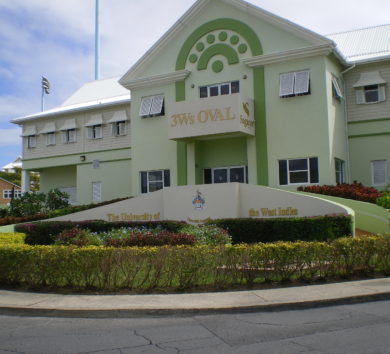

Colorectal cancer otherwise known as colon cancer is among the top five main cancers that affect Jamaicans yearly. Colorectal cancer is a disease in which the cells in the colon or rectum grow out of control.
According to a report from the Jamaica Cancer Society, colon cancer is the third leading causes of cancer-related deaths in Jamaica. The report revealed that in 2018, 642 new cases of colon cancer were recorded in Jamaica while 373 persons died from the disease.
Colon cancer is not one of the most talked about cancers in Jamaica, however, it affects several Jamaicans and continue to place a burden on the country’s healthcare system. Colon cancer can be treated if detected from an early stage.
Age

The risk of developing colon cancer increases as a person gets older. According to the Centers for Disease Control and Prevention, younger adults can get colon cancer, but it’s much more common after age 50. Colorectal cancer is rising among people who are younger than age 50 and the reason for this remains unclear.
It is now recommended that individuals get screened for colon cancer at the age of 45 years old due to the increase in young people being diagnosed with the cancer.
Physicians typically conduct a colonoscopy, a procedure that looks inside the rectum and colon (large intestine) for polyps or any abnormalities that may be cancerous to aid in the diagnosis of the cancer.
Family history

Colon cancer can be passed down from one generation to the next which is commonly known as genetics.
An article published by John Hopkins Medicine titled Colon Cancer Risk Factors revealed that approximately 5 to 10 per cent of colon cancer and rectal cancers were a result of an inherited genetic syndrome. This is a process by which the cancer is passed down through the bloodline from a close family member such as a mother, father or sibling.
It is highly recommended that persons who have lost a family member to colon cancer to get screened from an early age to detect the cancer and aid in diagnosis. Colon cancer is one of the cancers that can be easily treated if detected from an early stage.
Ethnicity

The American Cancer Society (ACS) revealed that African Americans are about 20 per cent more likely to get colorectal cancer and about 40 per cent more likely to die from it than most other groups.
The main reasons quoted by the health professionals were related to their socioeconomic statuses such as the lack of access to healthcare and lifestyle practices.
While colon cancer is a common issue in Jamaica, many people diagnosed with the cancer are unable to access treatment due to a lack of financial support and health insurance.
Dr Ernest Madu, cardiologist and clinical investigator outlined in a recent publication that the Jamaican population is largely uninsured/underinsured with only approximately 15 per cent of the population having health insurance. Individuals mostly finance their healthcare needs out of pocket and this is a huge burden to most patients.
Smoking

Studies have shown that people who are active smokers are at risk of developing colon cancer. According to the ACS, people who smoke tobacco for a long period of time are at a higher risk of developing colon cancer compared to persons who are not active smokers.
Smoking makes people more vulnerable to certain diseases because the poison in cigarettes weakens the immune system, the organs and processes in the body that helps to body resist certain toxins.
Inhaling harmful toxins from smoking is just as harmful as first hand smoking. It is well known that smoking may result in several cancers such as lung, throat, colon, pancreas and among others.
Diet

Studies have shown that persons who consume a diet that is high in processed meat such as pork, beef and lamb increase the risk of persons developing colon cancer.
It is important to maintain a healthy diet that is rich in vitamins, proteins, minerals and carbohydrates to provide the body with the necessary energy to help in the fight against certain diseases. As the popular saying goes ‘make your food your medicine and your medicine your food’, it is important to be mindful of the types of food that is being consumed on a daily basis.
Other lifestyle practices such as alcohol intake, lack of physical activity and being overweight increases the risk of individuals developing colon cancer.







Comments